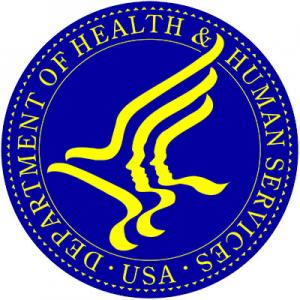HHS Reminds Pharmacies of their legal obligations to ensure access to reproductive healthcare services

Via the U.S. Health & Human Services Dept:
HHS Issues Guidance to the Nation’s Retail Pharmacies Clarifying Their Obligations to Ensure Access to Comprehensive Reproductive Health Care Services
Today, following President Biden’s Executive Order on ensuring access to reproductive health care, the U.S. Department of Health and Human Services (HHS) is issuing guidance to roughly 60,000 U.S. retail pharmacies, reminding them of their obligations under federal civil rights laws. The guidance makes clear that as recipients of federal financial assistance, including Medicare and Medicaid payments, pharmacies are prohibited under law from discriminating based on race, color, national origin, sex, age, and disability in their programs and activities. This includes supplying prescribed medications; making determinations regarding the suitability of prescribed medications for a patient; and advising a patient about prescribed medications and how to take them. The action is the latest step in the HHS’ response to protect reproductive health care.
“We are committed to ensuring that everyone can access health care, free of discrimination,” said Secretary Becerra. “This includes access to prescription medications for reproductive health and other types of care.”
Under Section 1557 of the Affordable Care Act (Section 1557), 42 U.S.C. 18116, recipients of federal financial assistance cannot exclude an individual from participation in, denying them the benefits of, or otherwise subjecting them to discrimination based on sex and other bases (i.e., race, color, national origin, age, and disability) in their programs and activities. Under federal civil rights law, pregnancy discrimination includes discrimination based on current pregnancy, past pregnancy, potential or intended pregnancy, and medical conditions related to pregnancy or childbirth.
HHS is committed to ensuring that people can access reproductive health care, free from discrimination. If you believe that your or another person’s civil rights have been violated, you can file a complaint with HHS.
Below are a list of actions HHS has taken in the days following the Supreme Court’s ruling to ensure access to reproductive health care:
- Launched the ReproductiveRights.gov public awareness website, which includes a know-your-rights patient fact sheet;
- Convened a meeting with health insurers, and sent them a letter, calling on the industry to commit to meeting their obligations to provide coverage for contraceptive services at no cost as required by the Affordable Care Act;
- Issued guidance to patients and providers that addresses the extent to which federal law and regulations protect individuals’ private medical information when it comes to seeking abortion and other forms of reproductive health care, as well as when it comes to using health information apps on smartphones;
- Announced nearly $3 million in new funding to bolster training and technical assistance for the nationwide network of Title X family planning providers;
- Met with Michigan Governor Gretchen Whitmer, Oregon Governor Kate Brown, and Maine Governor Janet Mills and state attorneys general to discuss state-specific concerns;
- Issued guidance on the Emergency Medical Treatment and Active Labor Act (EMTALA) reaffirming that it protects providers when offering legally-mandated, life- or health-saving abortion services in emergency situations.
How to support my healthcare wonkery:
1. Donate via ActBlue or PayPal
2. Subscribe via Substack.
3. Subscribe via Patreon.



